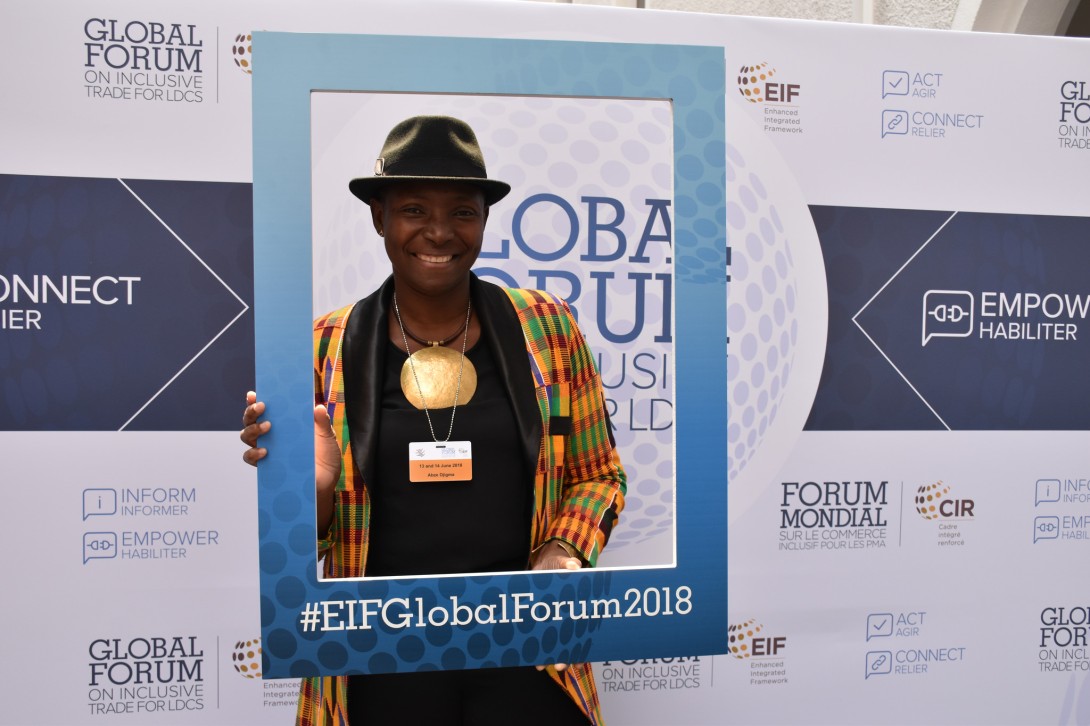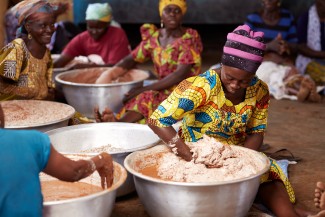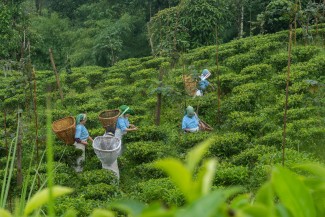Can you introduce yourself and your work?
I'm from Burkina Faso, which is a Least Developed Country but landlocked. And I am in the solar energy business with work in rural areas for rural electrification. With the Mama Light for Sustainable Energy initiative I organize trainings with my government with a program of 6,500 youth and women in 13 regions in Burkina Faso.
A lot of LDCs have contacted me to implement Mama Light in their countries because we are tackling the climate issue, the Paris Agreement, the SDGs. There are gender aspects, health aspects, youth job creation – which are all very important. So that’s what I'm doing with the initiative and it’s helping with economic growth and also it's good for our continent.
We need to be in the driver's seat of economic growth because it's important for us and for the next generation, and is the right pathway to trade with other countries. It's my duty to start doing some of the homework to facilitate trade. If other SMEs want to trade it's much easier if they can see skilled people in the field– that’s really when we will have economic growth.
As you are immersed in the climate issue and energy, what is your opinion on the give and take between trade and supporting the environment?
If I can quote my grandmother who passed away at 110, she always told me be aware that what you eat is waste and waste is food, so whatever we produce has consequences. Sometimes we go top down instead of greening up – for me it's about greening up. We have solutions that are right there, that we can be inspired by, that others can take and bring to scale.
We can learn from the mistakes of OECD countries and we can protect nature and do business because it's not conflicting. It’s a matter of really using our resources in a smart way, teaching our children. Sometimes we think big, and it is also those simple things that make life easier like recycling and reusing.

We are here together at the Global Forum on Inclusive Trade for LDCs, where you are a speaker. What of inclusive trade? And what have you taken from these Forum discussions?
What I learned is that there are already a lot of existing legal frameworks and we do not need to recreate others. We already have solutions. We can build on those and share our expertise within the region and also with OECD countries.
I know that people in the region don't really know about blockchain technology but we can definitely be part of the task force and explain and see how we can go forward together. So my takeaway and what I raised in the last session is about finance for MSMEs and the informal sector. We need long-term finance but the issue is that that money doesn't really reach the MSMEs and the informal sector and we don't have the means to pressure to ensure money gets to them. The private sector and commercial banks and donors really need to sit together and find a solution because it's not sustainable, at some point you can't ask the informal sector to move to the formal economy if you don't put the means in place. So to that end, with my government, we are also trying to modernize the informal sector.
A Call to Action was introduced at the Forum. Why is this call, with supporters ranging from a vice president to a minister to yourself, important and why now?
I totally support the Call to Action and I congratulate the EIF Executive Director and the Secretariat for the initiative. Inclusive growth is important and we cannot continue with business as usual – if we want to stop migration, if we want to keep decent jobs we really need inclusivity and this means we have to share market access and remove hurdles.
But if you open the market and you put the roof so high, it doesn't make sense. We need also to make it fair otherwise it will be useless. For women it's important all the time to bring them in – for me that is really critical. In the last session it was mentioned that roughly USD 40 billion of turnover is made by the informal sector in Africa, so the banks should also put in place the enabling environment. And also important for me is new technology – we can use digitalization to really explode, to leapfrog.
Any final comments?
I would that say the best weapon to fight extreme poverty is business. Trade is the answer.
In Burkina Faso we have great examples of regional integration and we are trading together and have common projects. Our Ministry of Trade is really pushing forward and putting in place a specific fund for SMEs and I also think that it is critical if we want to grow our business and do more trade. And capacity building, of course, with what we are doing with entrepreneurship and training support to be able to meet the standards of international trade.
Djigma discussed inclusive trade and the way forward as part of the "Talking trade strategies for small businesses, women and youth" panel at EIF’s Global Forum on Inclusive Trade for LDCs on 13-14 June 2018.
This interview has been edited and condensed for clarity.
If you would like to reuse any material published here, please let us know by sending an email to EIF Communications: eifcommunications@wto.org.


